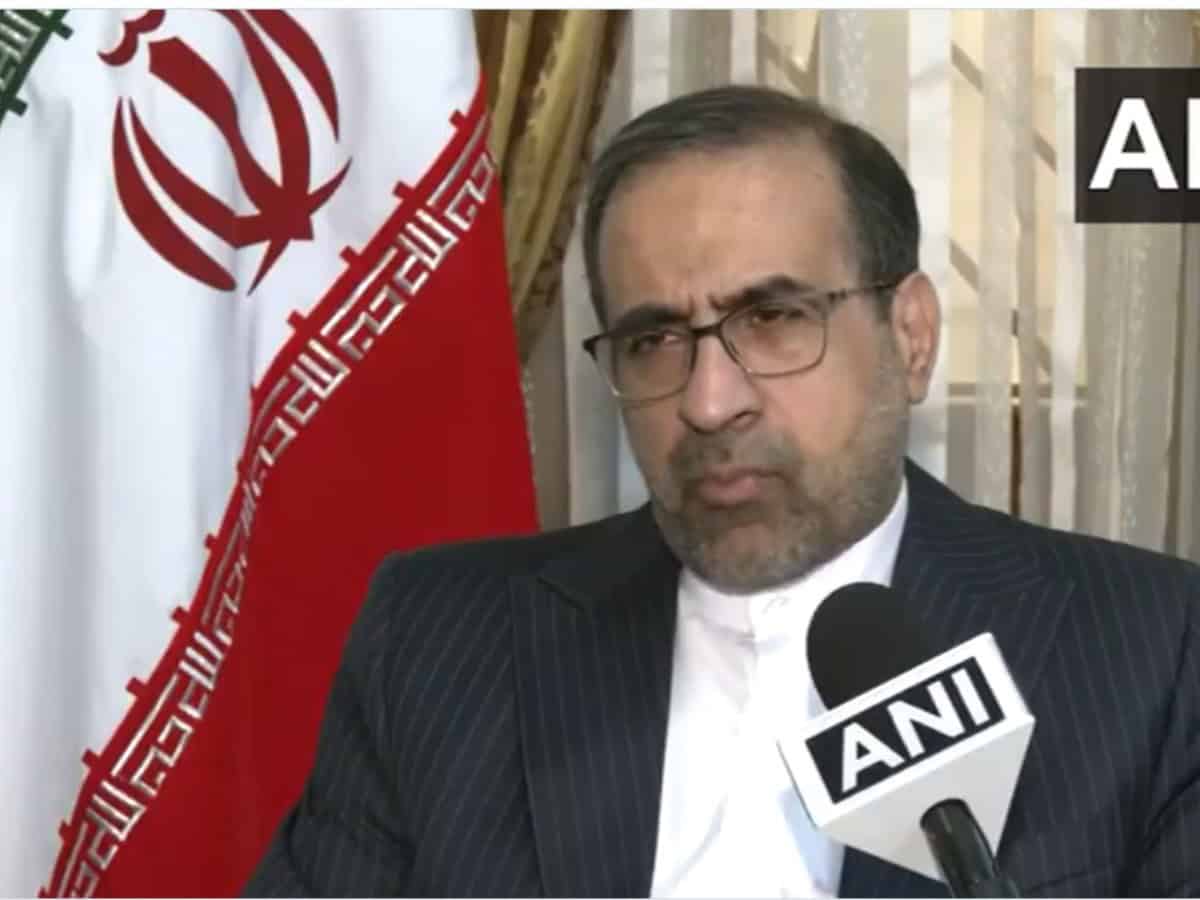
Iranian Ambassador to India, Iraj Elahi said the current situation in West Asia is deteriorating amid escalating conflict between Israel and Lebanon, adding that there is no horizon in sight for the end of the “tragic trend” in Gaza.
Criticizing operations by Israel, Elahi alleged that Israel’s “crimes” in Gaza and Lebanon are continuing while terming the recent assassination of Hamas leader Ismail Haniyeh as a “terrorist operation inside Iran” for which his country has vowed revenge.
Speaking to ANI, the Iranian envoy on Tuesday said, “Unfortunately, the situation in West Asia is not good. The crimes of Israel in Gaza and Lebanon are continuing. Recently, we have witnessed a terrorist operation inside Iran, the assassination of Hamas leader Ismail Haniyeh, who was an official guest in Iran.”
He further stated that all Palestinians have been displaced from Gaza.
The Iranian envoy also criticized the US support of Israel and Prime Minister Benjamin Netanyahu.
“The situation is escalating and deteriorating. Daily we are witnessing cases of innocent people increasing.
40,000 lives have been lost. So it is not just a figure. More than 90,000 have been wounded. All the Palestinians in Gaza have been displaced…there is no safe place. Displaced people are targeted by Israeli forces,” Elahi said.
He added, “Unfortunately, there is no horizon for the end of this tragic trend in the region…from another side, we are witnessing, full support of the United States to Israel and Netanyahu, who is responsible for this crime. There is no intention to stop this crime.”
Tensions in West Asia have escalated following the deaths of several key Hezbollah and Hamas leaders in quick succession.
Last month, Israel Defence Forces (IDF) confirmed that top Hezbollah commander Fuad Shukr was killed in the Israeli strike in southern Lebanon on Tuesday (local time).
This has been followed by intense strikes between Israel and Hezbollah in Lebanon, sparking fears of a wider conflict.
Highlighting several anti-Israel demonstrations in different parts of the world, the Iranian Ambassador further warned that the escalating conflict could spur further drawing more people into the conflict.
“Naturally, it will provoke the feelings, the heart of all people in the war, not only Muslim people in the war, but all people…as we witnessed demonstrations in Europe, Australia, the Middle East, in North America. So, if it continues it will affect…I hope those who are responsible, those who have influenced, Israel, especially the United States…reach to this conclusion, that it should stop this ongoing trend…and this genocide,” he stated.
Speaking on Haniyeh’s assassination, Ambassador Elahi reiterated Tehran’s position that the Hamas leader was killed by a short-range projectile with a warhead of 7kg explosives and again blamed Israel for the attack.
He said that the latest investigation revealed, that Ismail Haniyeh was assassinated by a short-range projectile with a warhead of 7-kilogram explosive materials.
” There is no doubt in Iran, and according to the proof and evidence, there is no doubt that Israel is behind this assassination. You know, besides this, it doesn’t need Israel to accept the responsibility of this. You know, we have witnessed too much terror and assassinations which have been done inside Iran and outside of Iran, in the region, by Israel, that Israel did not accept. Logically, we can judge and conclude that Israel is behind this,” the envoy said.
Haniyeh was in Iran’s capital for the inauguration ceremony of Iranian President Masoud Pezeshkian last month, when he was assassinated.
Israel, which is at war with Hamas in the Gaza Strip, has neither acknowledged nor denied killing Haniyeh.
However, Iran has accused Israel of the attack and has vowed revenge.
Being asked about Iran’s warning of retaliation against Israel, the Iran envoy said it is the “inherent right” of Iranians to defend their national interest and national security, adding that Tehran will decide on this.
“Regarding the retaliation by Iran, we believe that we have the inherent right to defend our national interest and national security. But it depends on how we retaliate. It depends on the situation. There is no doubt about retaliation. We will make our decision about this, but there will be revenge,” Elahi said.



